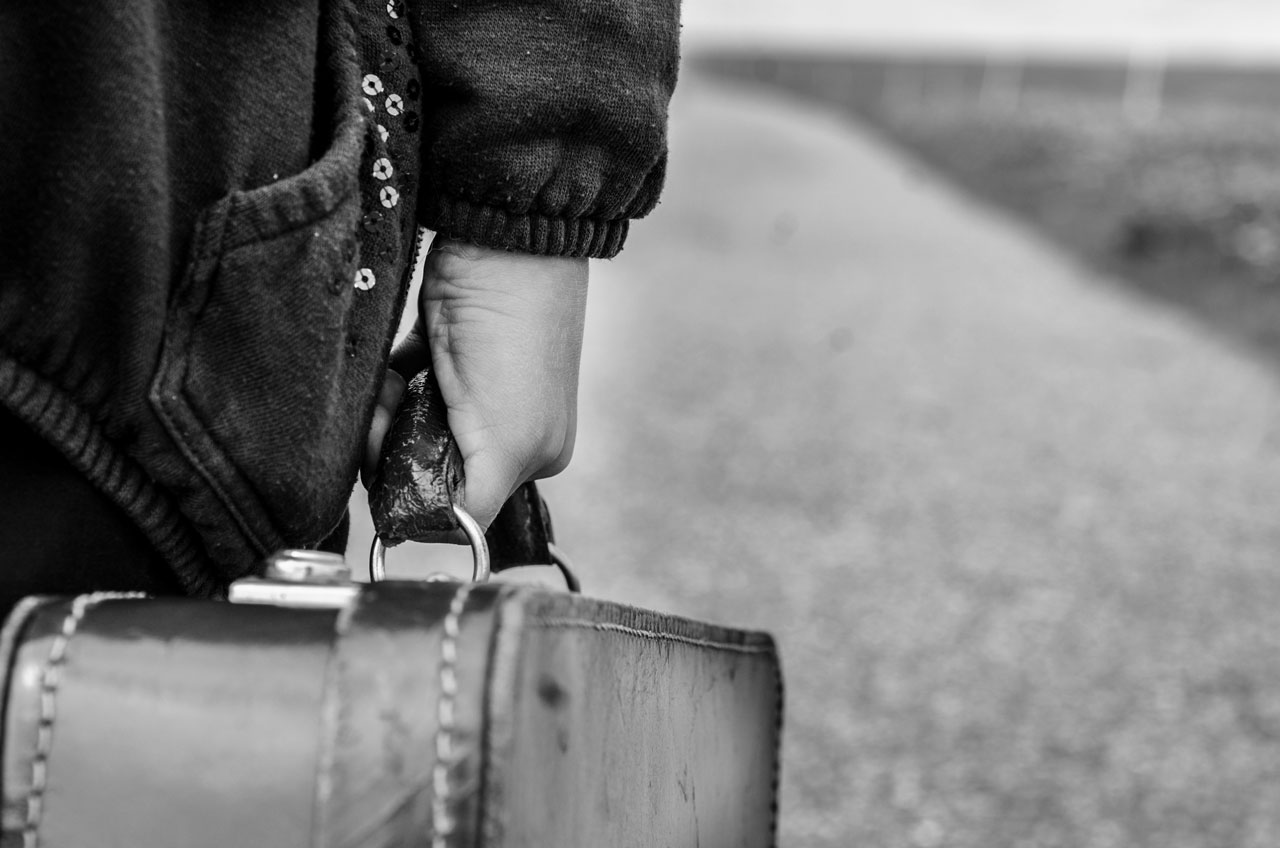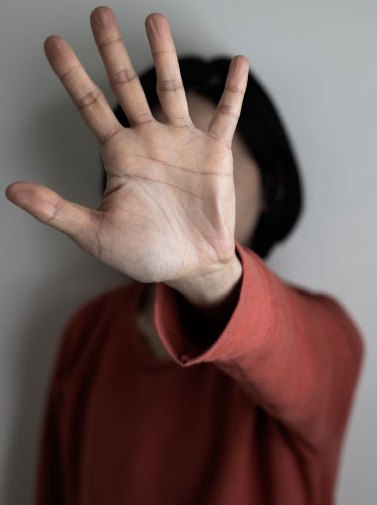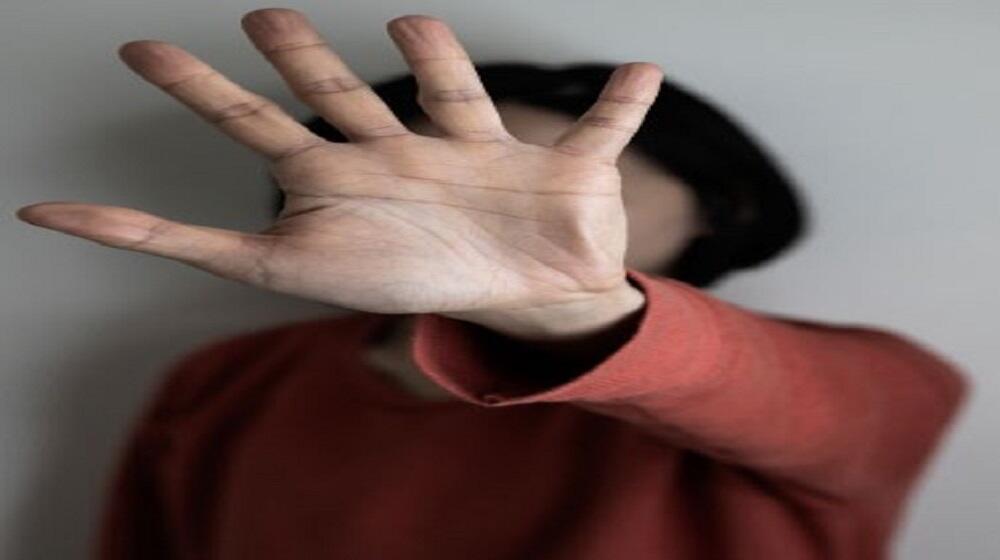Anna is a survivor of Domestic Violence living in the Parish of St. Elizabeth. For five (5) years she was in a relationship with the man who fathered her first child. She said the physical and verbal abuse from him lasted about three (3) years, and became worse after she became pregnant.
“He would get angry and beat me even at my workplace. I tried to leave on many occasions, but he always sweet me up so I stayed with the hope he would change. He never changed and the abuse became worse. I lived in constant fear because if I told him ‘I am leaving’, he would threaten me.”
Anna made several reports to the Police; however she said she did not receive any help at the time. Additionally, she said her abuser would threaten to kill her if she made any reports to the Police.

Gender-based violence (GBV) is one of the most prevalent human rights violations in the world. It knows no social, economic or national boundaries. The United Nations’ definition of GBV is, “any act of gender-based violence that results in, or is likely to result in, physical, sexual or psychological harm or suffering to women…whether occurring in public or private life.”
Anna is one of many GBV survivors worldwide. While GBV is not limited to violence against women and girls, according to World Health Organization’s (WHO) data from 2021, almost one in every three women, or approximately 736 million women, have been subjected to intimate partner violence, non-partner sexual violence or both at least once in their lifetime. This does not account for the 1 woman every 11 minutes who is killed by her partner (UNODC, 2020).
Anna said she decided to leave because he attacked and fought her at her workplace.
“I went home and packed my bag to leave, he tried to stop me and we had a fight. I eventually left his house and went back to my mother” Anna said.
But the abuse did not stop there because even after she had moved on to another relationship he was still tormenting her. According to Anna, one night, about three months after, he went to her house, hid and attacked her and her new partner, and used a knife to stab them.
“We had to seek medical attention at the hospital, however he was never charged for the offense” she relayed.
Jamaica has a high prevalence of Domestic Violence compounded by beliefs and traditions. According to recent statistics, 28 per cent of women in Jamaica experience physical or sexual violence in their lifetime. In 2018, 71 percent of girls under 18 who were victims of crime had been raped. Two out of 10 girls aged 15 to 19 years think it is okay for a husband or partner to hit his wife or partner, and 85 percent of children experience violent discipline at home. Additionally, a plethora of headlines and stories in the media outline horrific incidents of GBV. So it is clear that there is much that needs to be done to address this issue and the Spotlight Initiative has provided significant support to address the problem.
The Spotlight Initiative, funded by the European Union, has invested €8 million over three years on a range of efforts – focused in four parishes – to prevent and reduce family violence, which mostly affects girls and women. Family violence refers to acts of abuse and aggression in family or close-knit relationships. This includes domestic violence, intimate partner violence, child sexual abuse and corporal punishment.
With support from the United Nations Development Fund (UNDP) via the Spotlight initiative 10 Domestic Violence Intervention Centers (DVICs) were established across Jamaica. They are located at police stations but set apart from the general hub of the station. Each DVIC is run by a trained police officer offering intervention through counseling, referrals, law enforcement intervention, protection, follow up, home visits and other services. The United Nations Population Fund (UNFPA) supports the DVICs by providing training to the police officers.
Anna is one of many survivors who have benefitted from the DVICs and she was happy to share that part of her story. “In 2022, I was sharing my story with someone who informed me about the Domestic Violence Intervention Centre in Santa Cruz, she said. I was afraid to come because of the experience I had received at the station, and I wasn’t sure if I would get any help. I then became brave and visited the office. I was very nervous. I was welcomed to the office where I was given a seat in a room. I was interviewed by Mr. Morgan and I felt very comfortable sharing my story. I was no longer afraid to speak about it.”
Anna further shared that she felt safe and supported when she went to the DVIC. “Before coming to the Centre, I had no support from family or friends. I was stressed out and saw no way out. The Centre is the best place I have come. The support from the team is very good, it eased all the stress. I was able to speak freely and openly about my feelings. It felt like the safest place on earth.”
She also explained that the officers at the center were well trained and provided her with the right guidance and information.
“They informed and guided me about applying for a Protection Order at the CourtHouse and I did. I went to court and my baby father did not show up. The Judge denied the order because I wasn’t explaining my situation properly. It was also my first time at court so I was nervous. I came out of court and I broke down. I felt like giving up because I tried all the options and the court was the last hope I had, the system had failed me. I then returned to the Centre and told them what happened at court and that I am giving up. They told me to remain calm, but I couldn’t. Miss McLeod then made contact with someone at the Court, and Mr. Morgan and I went back to the Judge. I was better able to explain myself and the Judge granted the order. I felt relieved and started to laugh again.”
Anna also had some words of advice for the perpetrators of abuse. “I would like to tell perpetrators of violence that no form of abuse is acceptable. No matter what happens, there is no excuse. I would encourage them to seek help by finding someone to talk to, especially if children are involved.”
When probed further about her experience at the center and what advice she would give to other women who find themselves in a similar position, this is what she had to say. “Based on my experience, I would tell other women to be brave enough to take action by visiting one of the Domestic Violence Centres and tell your story to get the necessary help. I would also encourage them to go to court and not sit back and accept the abuse.I would definitely recommend persons affected by domestic violence to visit the center. It is private and comfortable, the service is great. The staff is friendly, warm and easy to talk to. They call and keep in touch with me regularly to find out how I am coping. They helped me through my worst moments, I am happy I made the decision when I did. Thank you very much, you gave me hope!”
The Spotlight Initiative approaches family violence as a major public health and development issue. Implementation has been led by a number of UN agencies, including UNFPA, working closely with the Ministry of Culture, Gender, Entertainment and Sport as well as civil society organizations.



